Spicing up my life – from the Wirral to Ethiopia
When was the last time you discovered a new cuisine that completely surprised your taste buds? For me, it was my recent adventure at Muna’s, a vibrant Ethiopian restaurant in Tollcross that’s rapidly becoming the talk of Edinburgh’s food scene.
But before I tell you about my experience there, I need to share my long-standing love affair with a particular spice company.
I’ve been smitten with Seasoned Pioneers, a Wirral-based spice company, ever since they sent me some recipe box spices nearly seven years ago under the guise of the Spice Pioneer.
Though these particular kits are no longer available, the company itself has become a trusted brand among leading food writers and chefs – Delia Smith and Nick Nairn count themselves as fans, and I’m certainly in that club too.
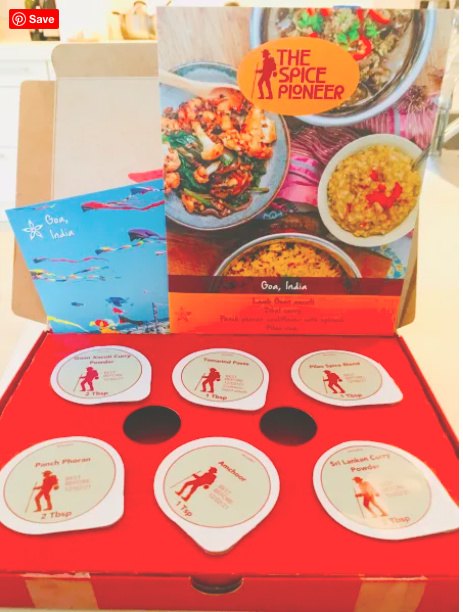
The company was founded by Mark Steene, whose worldwide travels sparked a fascination with international seasonings. Today, the small team at Seasoned Pioneers offers an impressive range of over 300 authentic spices, chillies, herbs, seasonings, and spice blends, including organic options.
Each blend in their renowned collection is handmade to traditional recipes, crafted in small batches using up to fifteen carefully selected ingredients. The spices are dry-roasted, ground, and blended, resulting in convenient packages of authentic flavour that capture cuisines from across the globe.
As Delia wisely points out, there are two enemies of spice flavour: light and air. Many spices sold in glass jars sit under harsh store lighting, and once opened, they’re increasingly exposed to air.
Seasoned Pioneers cleverly packages their seasonings in resealable foil packs that shield them from light and eliminate air exposure when properly closed. Their compact size means they don’t monopolise precious cupboard space – unless, like me, you’ve been generously gifted their ‘World Spice Blends, The Definitive Selection’ Collection of 40 packets!
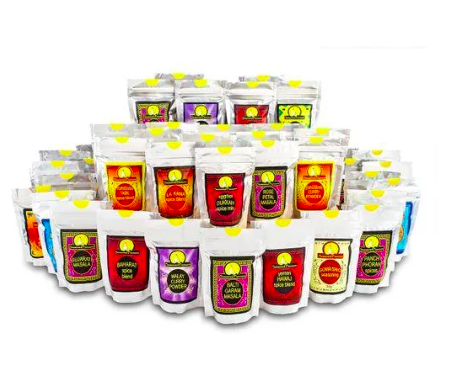
Recently, I reached out to Seasoned Pioneers hoping they might send me their African Berbere Spice Blend (a complex mix of red chillies, fenugreek seeds, ginger, black peppercorns, coriander seeds, cinnamon, allspice, cloves, cardamom, and ajowran). To my delight, they responded with overwhelming generosity, sending four boxes containing 10 packets each of their worldwide seasonings – an array of masalas, curry powders, and spices. With each pouch containing enough for about 20 servings, I’ll be eating curries for months to come!
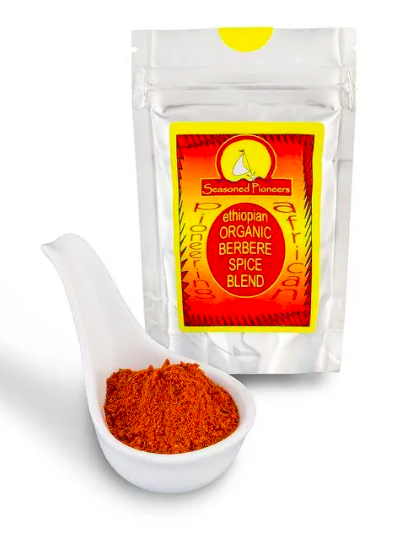
My interest in berbere spice was sparked after spotting Muna’s restaurant in Tollcross. Having never experienced Ethiopian cuisine before, some girlfriends and I decided to venture there for dinner.
Before our visit, I did a bit of homework and learned that Ethiopian food is typically shared communally, with dishes served on large platters of injera (a spongy sourdough flatbread), where diners tear off pieces to scoop up the food. The cuisine is known for its fragrant and often spicy flavours, with berbere spice being the cornerstone ingredient in many dishes.
Muna’s is a lively 40-seater restaurant run by its namesake, who commands her establishment with warm authority. Word has clearly spread about the generous portions and fair prices, as most tables were booked even for our early 6pm Friday dinner.

The interior is cheerfully decorated, giving it more of a casual café vibe than a formal dining establishment. The food arrives on huge dishes presented atop beautiful woven rattan baskets – though if you’re a group of four sharing combo plates, you might find your table a bit overwhelmed!
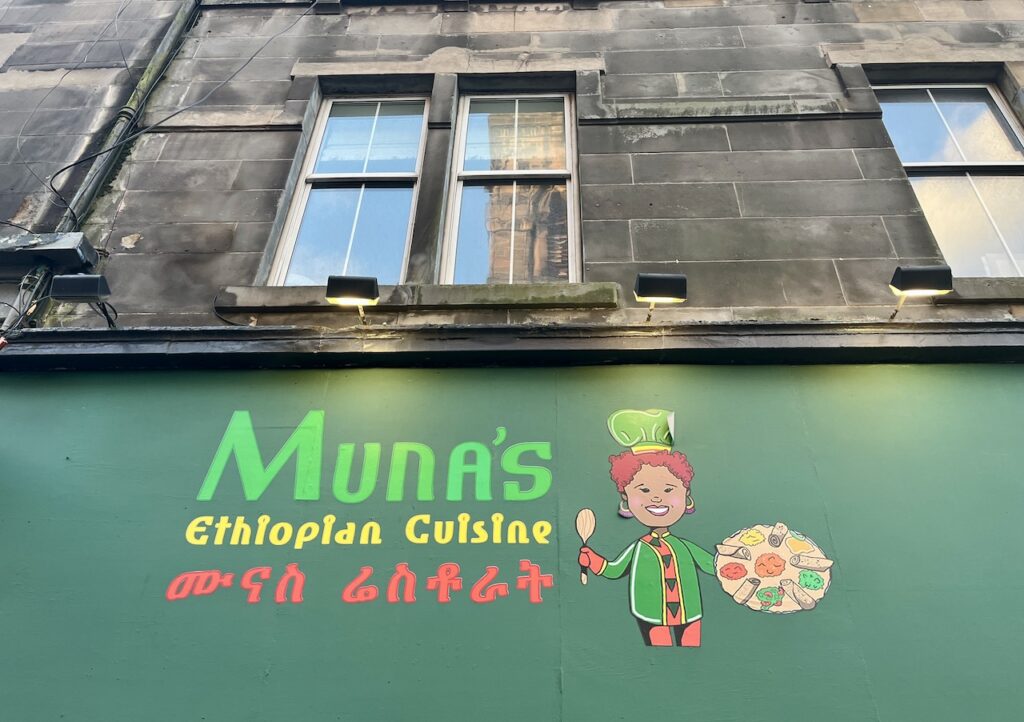
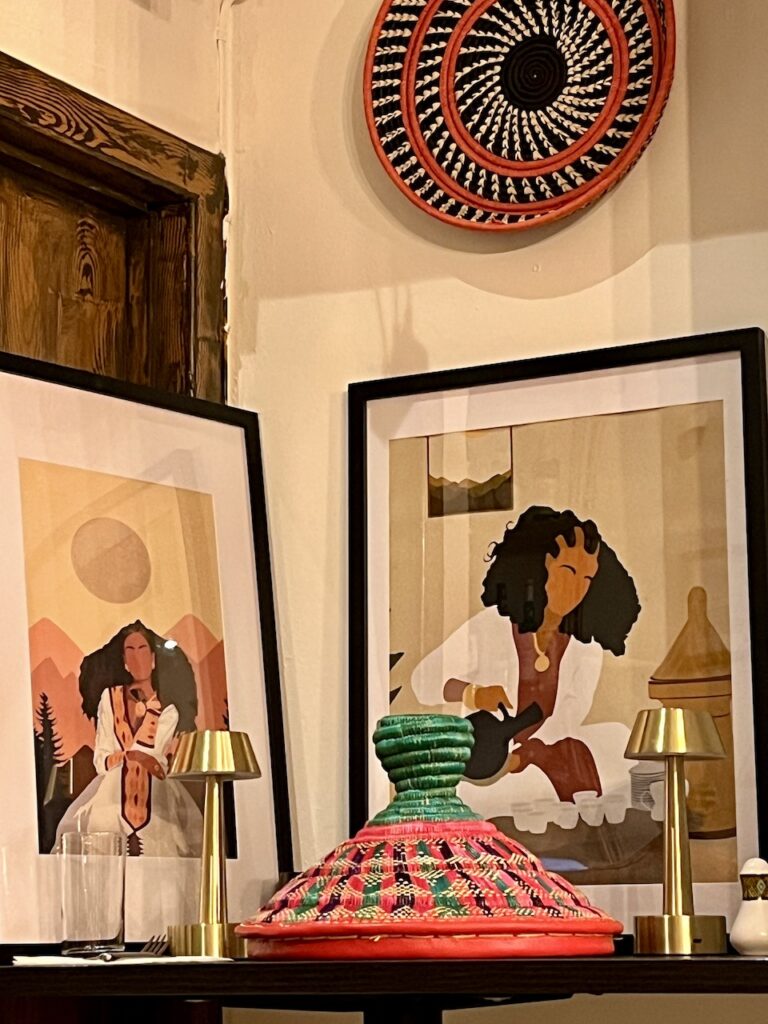
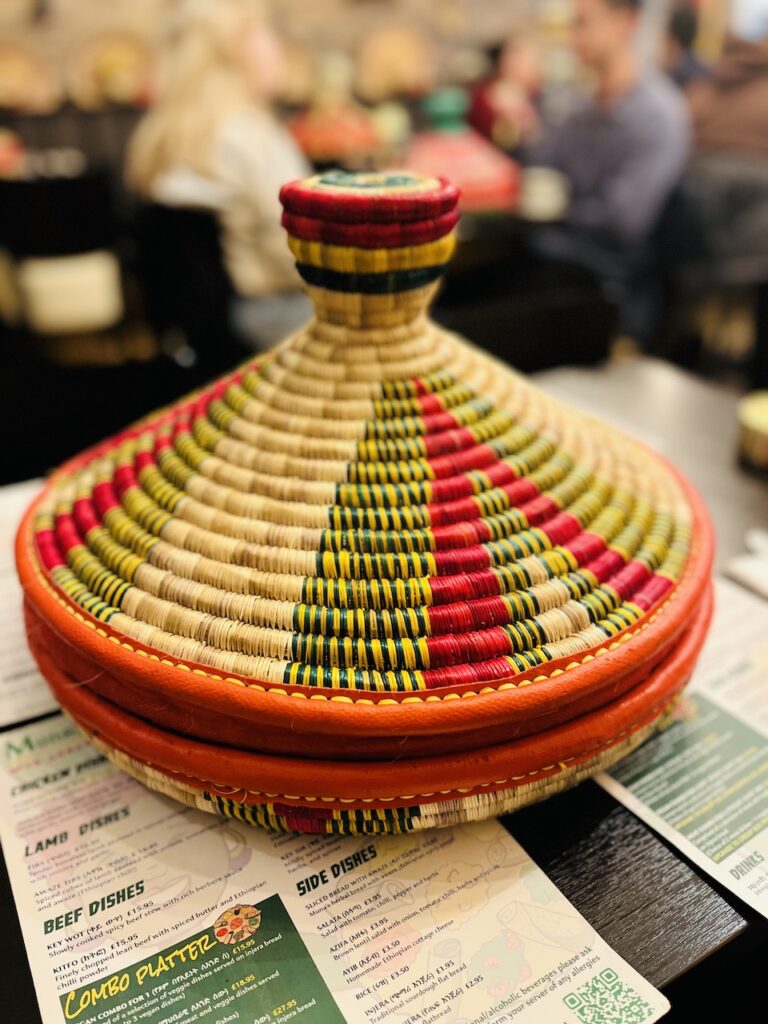
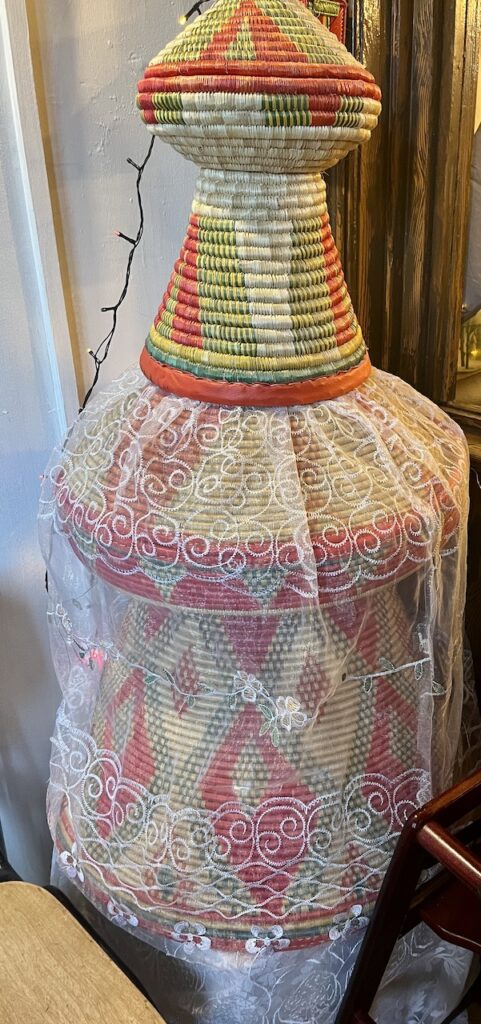
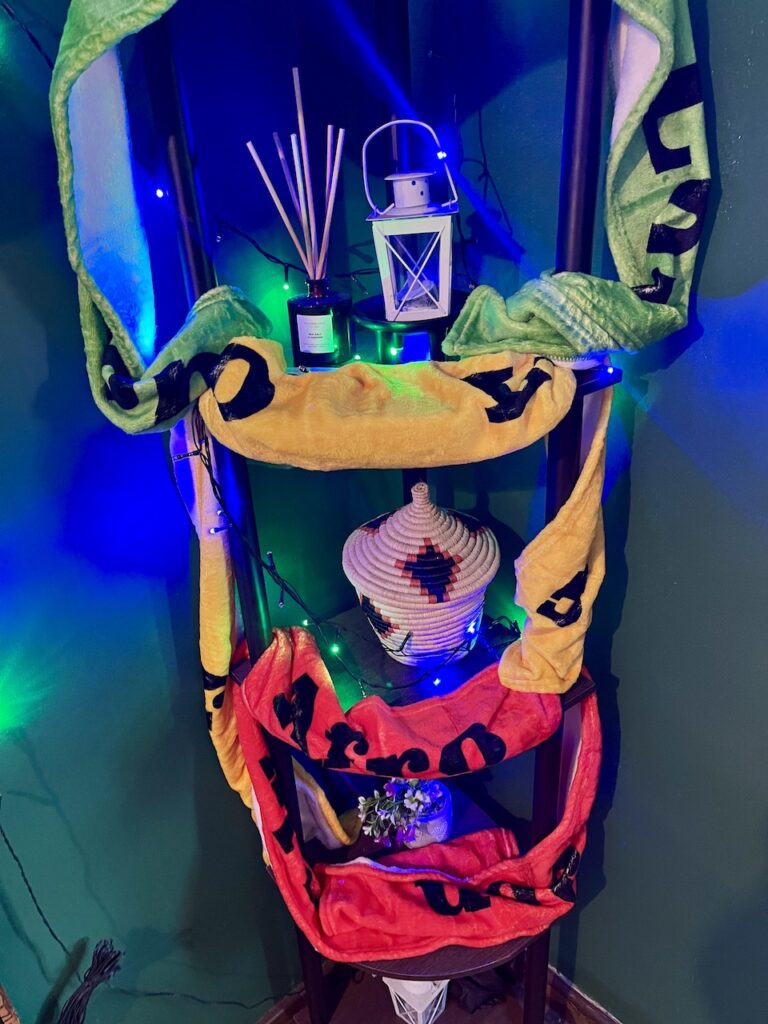
The meat and vegetable combo that I shared certainly packed a punch with explosive flavours and spicy heat – and won’t be for the faint-hearted! I personally preferred the boiled rice accompaniment to the traditional injera bread, which wasn’t quite to my taste. The homemade honey wine also wasn’t my cup of tea, served in a long-necked vase-like carafe, which you’ve to swig out of, but a night off the usual libations didn’t hurt.
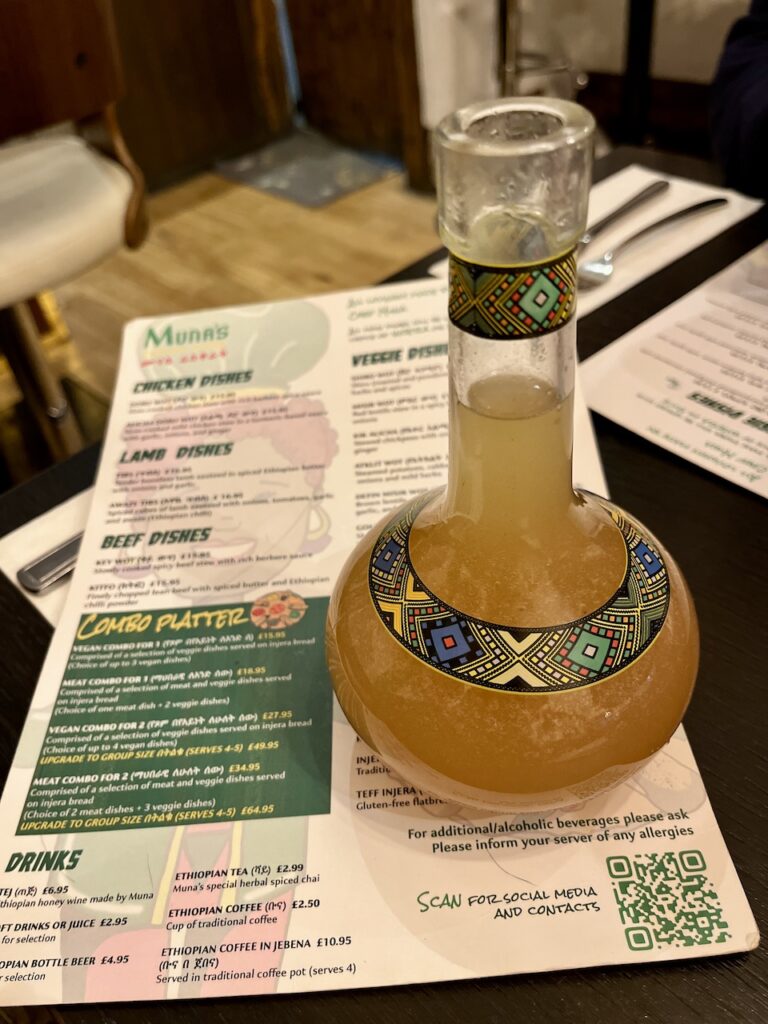
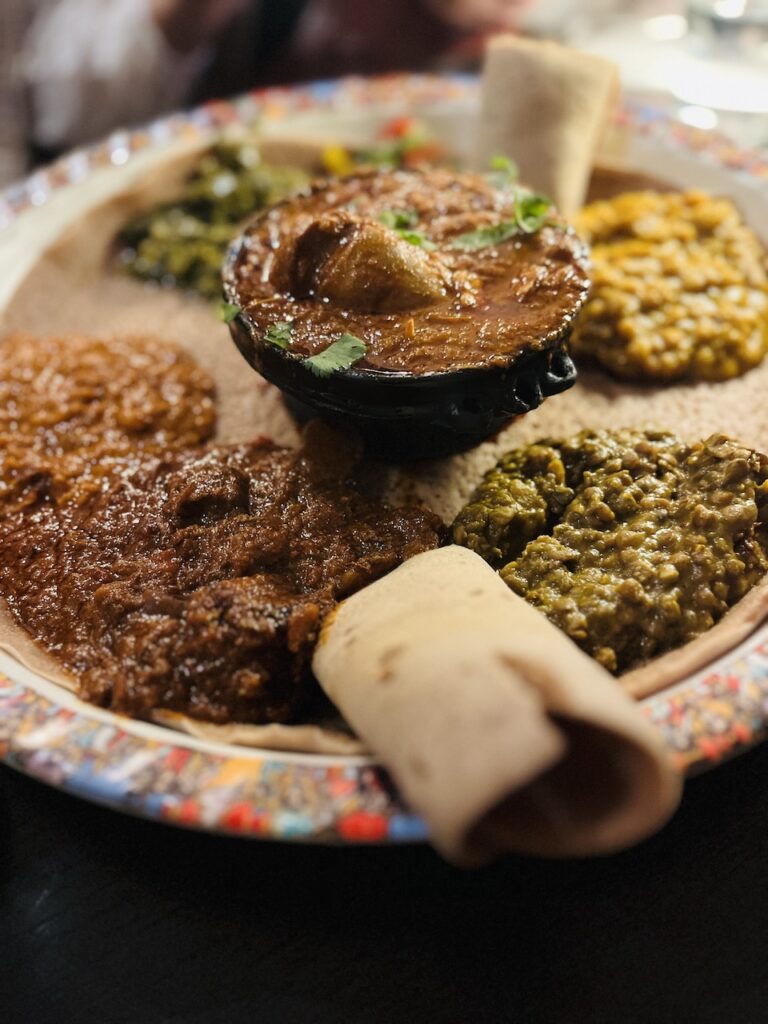
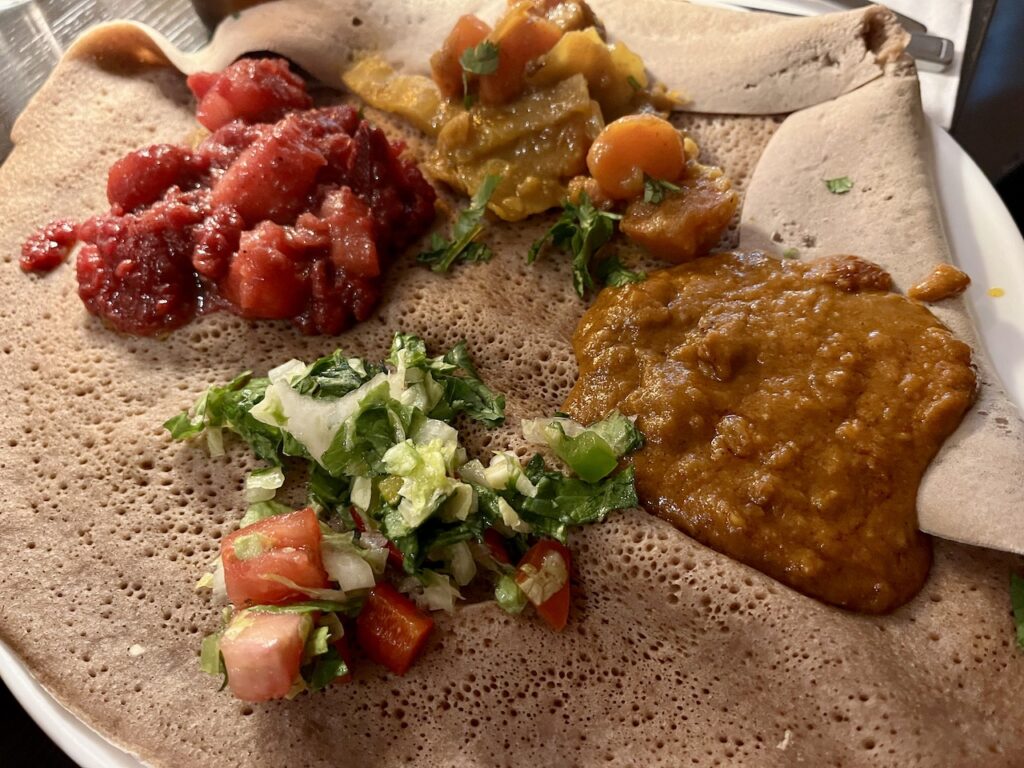
Muna’s offers a fun and different dining experience, with the vivacious Muna herself ensuring you feel welcome from the moment you arrive. If you’re feeling adventurous and want to try something new, it’s definitely worth a visit – though perhaps best suited to smaller groups of two or four who enjoy sharing their food.
As for making my own berbere-spiced Wot (stew) at home? You’ll have to wait while I perfect my version. It’s unlikely to rival Muna’s authentic creation, but I’m going to have great fun experimenting with this and the 39 other spice blends I’ve been gifted. In fact, I’m heading to the kitchen right now to get creative!